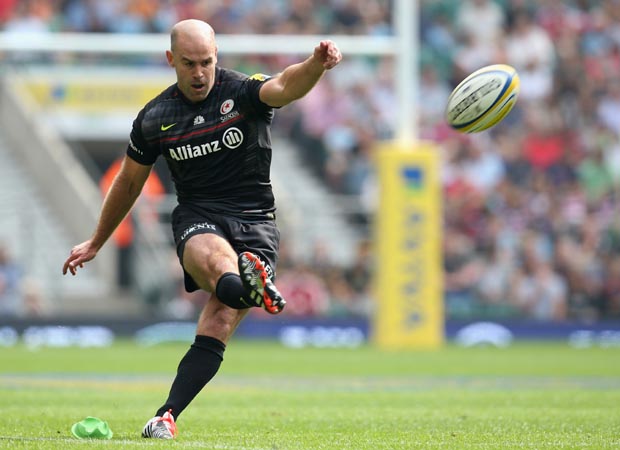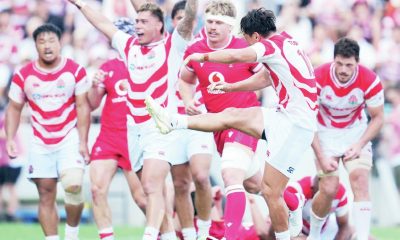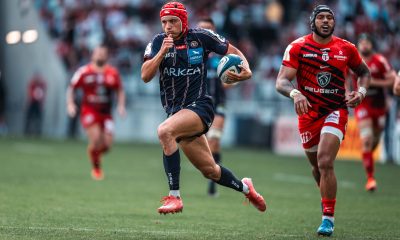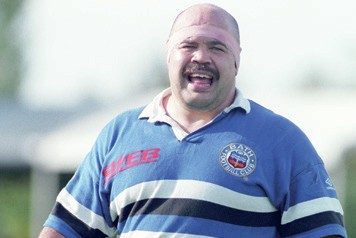There was a time when Wales hammered Australia 24-0, when the terse verdict reflected the expectation of an underwhelmed public: So what?
As pioneers in the art of coaching during the early Seventies, Wales were ahead of the game, the Wallabies a long way behind it. After their rout at the Arms Park, tour manager John Freedman and his assistant, the late Bob Templeton, made their smartest move of the trip.
They returned to Cardiff for an audience with Ray Williams, then the first of a new breed as the Welsh Rugby Union’s first full-time coaching organiser, a professional in an amateur game. Thanks to his own generosity of spirit and that of his employers, Williams gave his visitors chapter and verse.
The Australian Rugby Union flew him over for a lecture tour of the country and, imitation being the most sincere form of flattery, transplanted his strategy into the new Wallaby coaching catechism from the grass-roots to the Test squad.
The IRB recognised that and many other feats in bestowing its annual life-time achievement award on Williams at a ceremony in Llanelli last week – not before time but in time. At 87 and wheelchair-bound, the old warrior is seriously ill.
In a perfect world, someone with a sense of history would have ventured some 100 miles from the Australian team hotel in Cardiff on a pilgrimage to Williams’ home in West Wales. John Freedman, still going strong at 79, would love to have done so but he was otherwise occupied on a pilgrimage of his own deep into the Australian outback.
“I am so sorry to hear he is not well,” Freedman said when I tracked him down to Rossglen, a village on the Camden Haven river 200 miles north of Sydney. “I send my profound goodwill to him and his family.
“Ray Williams’ unselfish co-operation with the Australian Rugby Union back in the Seventies got the sport here back on its feet. Our game then lacked any depth and technique. We were way behind. Ray’s visit gave us the lift we needed. Apart from his technical knowledge, he was a very good communicator. He was able to break the whole technical side of the game into units in a way which made them clearly understood. That led to the foundation of our coaching panel under Dick Marks. We modeled it on Ray’s structure and promulgated the same message. Within four or five years we had turned the game round. His unqualified support enabled us to establish a national system.”
The effect in Australia went far beyond their wildest dreams, to Grand Slam tours and World Cup victories. Until the mid-Seventies, Wales had routinely dispatched the Wallabies as if they were a supporting bout for the All Blacks and Springboks.
Since Freedman’s Arms Park audience, Wales have taken some fearful beatings from Australian teams of the last 40 years. Williams, in his natural modesty, will shrug it off as pure coincidence but Freedman, a Wallaby prop in the Sixties, knows better.
How he would love to have been in the Phil Bennett suite at the Parc y Scarlets in Llanelli to witness the presentation of Williams’ award and shake him by the hand. How strange now to recall the events of the WRU’s annual meeting of 1967 when Williams vowed to ‘convince you (the delegates) that coaching is in the best interests of the game’, that at a time when it was a dirty word smacking of professionalism.
Gerald Davies paid tribute to a man whose vision revolutionised the sport. “He went to the world and the world came to Wales to listen to Ray Williams,” Davies said. “As the world’s first coaching organiser, he preached his rugby gospel not just in Wales but across the world.”
In a remote corner of New South Wales, Freedman had another good reason to have been back in Old South Wales and Llanelli in particular. His grandfather, Phineas Freed- man, emigrated from the old tin town towards the end of the 19th century and established a timber mill on the Camden Haven river.
His grandson described it as “a sentimental journey down memory lane”, one which he completed in good time to be home in Wahroonga for the Wallabies’ annual appearance in Cardiff. Inevitably his mind will have drifted back to that match in 1973, pointless on the pitch but priceless off it thanks to Ray Williams.
He could never have imagined he’d live to see ten Aussie wins in a row.
*This article was first published in The Rugby Paper on November 9.


International Rugby
Scotland focused on big picture with Fiji clash key to world ranking

British and Irish Lions
Blair Kinghorn could feature in British and Irish Lions tour despite knee injury

British and Irish Lions
Unconvincing British and Irish Lions labour to patchy victory over ACT Brumbies



























You must be logged in to post a comment Login